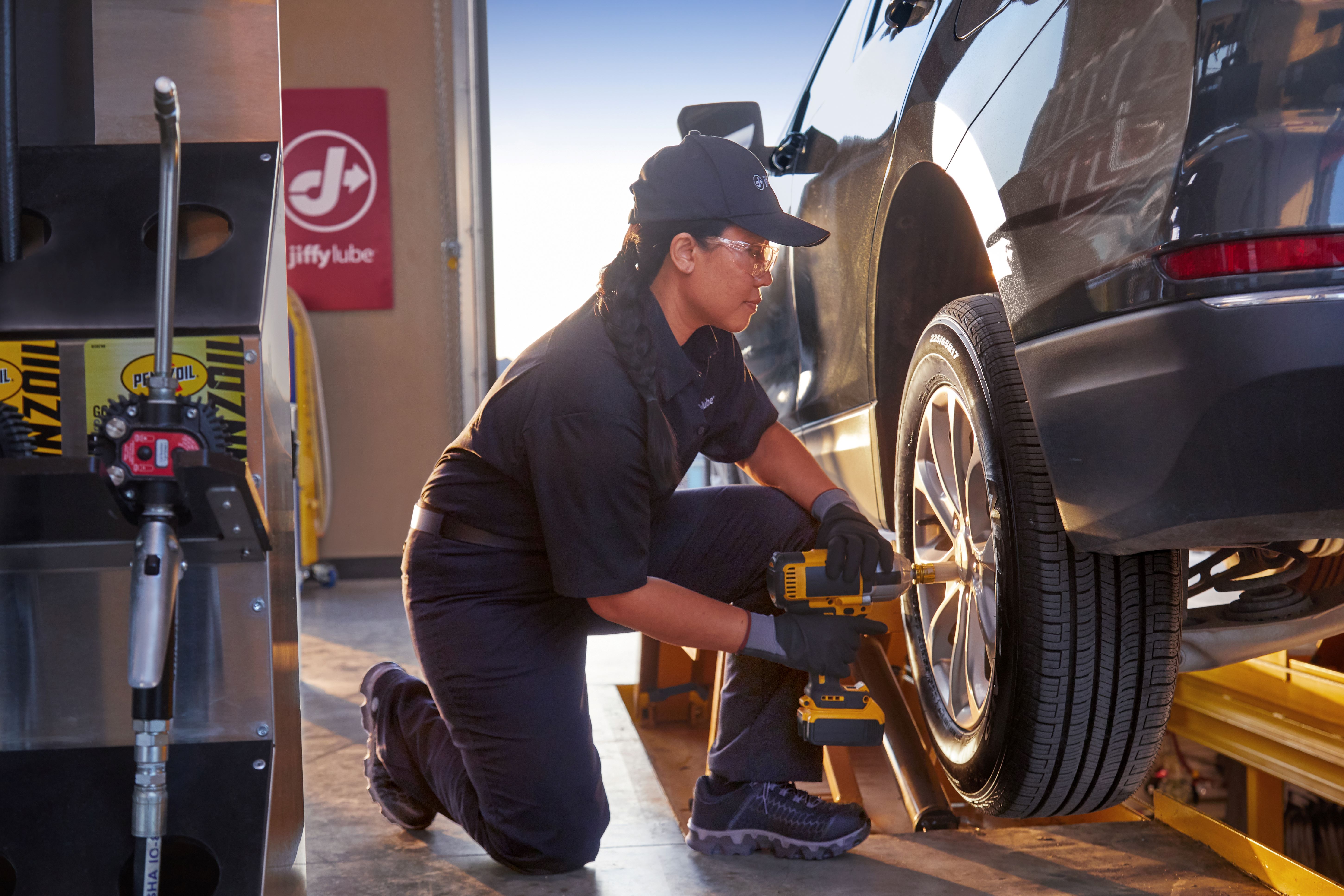Specialist Morris Tire and Alignment Solutions: Make Sure a Smooth and Safe Drive
Specialist Morris Tire and Alignment Solutions: Make Sure a Smooth and Safe Drive
Blog Article
Tire Solution: The Effect of Climate Condition
When it comes to making certain optimum efficiency and security on the roadway, comprehending the effect of weather condition problems on tire service is critical. In this discussion, we will discover the elaborate connection in between weather conditions and tire service, shedding light on the significance of weather-specific tire upkeep methods and considerations.
Warm and Tire Efficiency
When revealed to high temperature levels, tires experience modifications in efficiency that can significantly affect car security and handling. The warmth produced from prolonged driving or hot climate conditions causes the tire rubber to soften, resulting in reduced step life and increased wear. As the rubber ends up being softer, the tire's grip when traveling lessens, affecting stopping ranges and general grip. In severe instances, extreme heat can even cause tire blowouts, presenting an extreme safety and security threat to the car and its passengers.
Additionally, high temperature levels can increase the procedure of tire aging, creating the rubber to deteriorate faster. This can lead to cracks, bulges, and other kinds of damages that compromise the structural integrity of the tire. To reduce the effects of heat on tire efficiency, vehicle drivers must routinely check their tire stress, turn tires to make certain also use, and evaluate for any signs of damages. Additionally, utilizing tires particularly designed to stand up to high temperatures can aid preserve optimal performance and security when traveling.
Cold Weather Condition Impacts
Cold weather condition conditions can have a substantial impact on tire efficiency and safety and security. In chilly weather condition, tires may also lose air stress a lot more swiftly, which can affect dealing with and gas performance.
To mitigate the results of winter on tires, it is important to frequently inspect tire stress and inflate them to the maker's recommended levels. Utilizing winter months or all-season tires made for winter conditions can likewise boost traction and hold on icy or snowy roads - tire shop morris. Proper tire upkeep, including regular assessments for wear and damages, comes to be a lot more important throughout colder months to make sure optimum performance and safety
Rainy Conditions Impact
Throughout stormy conditions, tire efficiency and safety can be considerably influenced by the wet road surfaces and reduced exposure. The step pattern of tires plays a critical duty in preserving grip on wet roadways. Tires with damaged treads are more susceptible to hydroplaning, where a layer of water develops in between the tire and the road surface area, causing loss of traction. To combat this, chauffeurs must on a regular basis examine their tires for adequate walk depth and take into consideration purchasing tires especially developed for damp problems.

Snow and Tire Security
When driving in snowy problems, having the best tires can make a considerable distinction in safety and efficiency. Winter months tires are developed with special rubber substances and step patterns to give much better traction on snow and ice compared to all-season tires.
Along with utilizing winter months tires, it is critical to guarantee they are properly pumped up. Winter can trigger tire pressure to go down, affecting grip and handling (tire shop morris). Regularly inspecting and preserving the right tire pressure is vital for ideal performance in snowy conditions

Weather-Related Tire Upkeep
When faced with various weather conditions, proper tire upkeep becomes a critical facet of automobile safety and security and efficiency. Weather-related tire upkeep encompasses a range of techniques intended at making sure optimal tire function and longevity in various weather condition situations. One vital element of weather-related tire upkeep is tire pressure guideline. Varying temperatures can cause tire pressure to vary, affecting grip and fuel performance. On a regular basis adjusting and inspecting tire stress according to manufacturer referrals is crucial for secure driving in altering weather. Additionally, tire walk deepness plays a considerable function in dealing with different climate aspects. Tires with appropriate step deepness supply much better grip on damp or icy roadways, decreasing the danger of skidding or hydroplaning. Inspecting tire walk regularly and changing tires when tread wear reaches a specific depth is important for keeping traction and security in damaging weather. By focusing on weather-related tire upkeep, vehicle drivers can improve safety and security, boost car efficiency, and extend the life-span of their tires.
Final Thought
In final thought, climate conditions have a considerable impact on tire efficiency and safety and security (morris tire and alignment). From warm impacting tire stress and use to cold weather reducing grip, it is important to think about the weather when preserving and using tires.
In this conversation, we will discover the complex partnership in between weather condition conditions and tire solution, shedding light on the importance of weather-specific tire maintenance methods and considerations.

Report this page